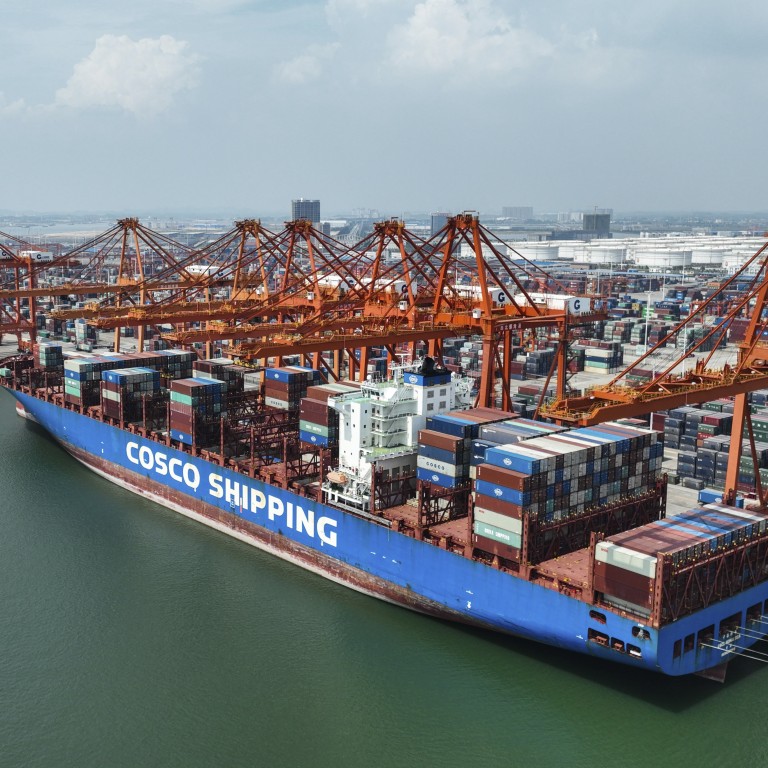
China trade: another blow for battered consumer exports to US in October
- Chinese exports to the US were down by 12.6 per cent year on year to US$47 billion in October, compounding the 11.6 per cent fall in September
- Top Chinese exports to the US – such as mobile phones, clothing, toys and furniture – all declined last month
Top Chinese exports to the US – such as mobile phones, clothing, toys and furniture – all declined last month, according to detailed Chinese customs data released on Sunday, as the pandemic-triggered consumer goods boom turned into a bust under pressure from purchasing power-suppressing price and interest rate rises.
Exports of toys, games and sporting products fell by 36 per cent to US$2.56 billion, while furniture and bedding dropped by 23 per cent to US$2.73 billion, the detailed data showed.
Despite the upcoming holiday shopping season, China had already confirmed its exports to the US were down by 12.6 per cent year on year to US$47 billion in October, compounding the 11.6 per cent fall in September.
How are Xinjiang goods still reaching the US 2 months into ‘forced labour’ law?
According to a survey of 34 leading US fashion companies, 86 per cent of respondents said they would reduce their cotton apparel sourcing from China due to concerns about the new law.
The survey was conducted from April to June by Sheng Lu, an associate professor of fashion and apparel studies at the University of Delaware, in collaboration with the United States Fashion Industry Association.
October exports of smartphones, one of the most valuable products in China’s exports to the US, also fell month on month despite the release of Apple’s new iPhone 14 series in mid-September.
According to the customs data, China shipped 11.07 million smartphones to the US in October, almost 580,000 fewer than September’s total.
A coronavirus outbreak and lockdowns at the world’s biggest iPhone factory in Zhengzhou, Henan province, triggered an exodus of workers and disrupted production last month. Apple has also warned of lower iPhone shipments for the year-end holiday season.
‘Global slowdown’ in clothing demand reflected in China’s cotton-yarn imports
As of Thursday, more than 100,000 people had applied for positions, according to financial news channel Yicai.
Despite the supply chain disruptions from coronavirus controls, Beijing has vowed to stick with its zero-Covid strategy, though it announced minor easing earlier this month.
Under the latest rules, local authorities must also ensure the smooth flow of logistics and refrain from ordering firms that are crucial to overall supply chain stability to cease production during an outbreak.
On Sunday, China reported more than 24,000 new coronavirus cases, including outbreaks in the major cities of Guangzhou, Chongqing and Beijing.


